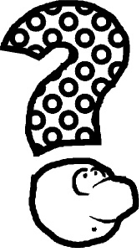| << Chapter < Page | Chapter >> Page > |
| YES | NO | |
| Described the best gift I have ever received in my life. | ||
| Used all my senses to describe this gift. | ||
| Expressed the thoughts and emotions about this gift. | ||
| Spelt all my words correctly. | ||
| Used the correct punctuation marks. | ||
| Used three paragraphs to express my experience and emotions. | ||
| Used the correct number of words. |
Now write your description of the best gift you have ever received - without mistakes. (Of course, if you have NO mistakes, then you do not need to do this extra work!) However, extra neat work might work to your advantage!
| Learning outcomes(LOs) |
| LO 1 |
| ListeningThe learner will be able to listen for enjoyment, and respond appropriately and critically in a wide range of situations |
| Assessment standards(ASs) |
| We know this when the learner: |
| 1.3 listens for specific information; |
| 1.4 listens actively in discussion. |
| LO 2 |
| SpeakingThe learner will be able to communicate confidently and effectively in spoken language in a wide range of situations |
| We know this when the learner: |
| 2.1 translates and interprets; |
| 2.2 interacts in additional language; |
| 2.3 shows developing ability to use features of spoken language to communicate: word stress, weak vowels, intonation and rhythm; |
| 2.4 debates social and ethical issues |
| LO 4 |
| WritingThe learner will be able to write different kinds of factual and imaginative texts for a wide range of purposes |
| We know this when the learner: |
| 4.1 writes to communicate information; |
| 4.2 writes for social purposes: |
| 4.4 writes creatively.; |
| LO 5 |
| Thinking and ReasoningThe learner will be able to use language to think and reason, as well as to access, process and use information for learning. |
| We know this when the learner: |
| 5.1 uses language and literacy across the curriculum:5.1.2 understands and produces texts used in other Learning Areas (e.g. an explanation of how the kidneys work, or the production of a report in Natural thinking.Sciences);5.2 use language for |
ACTIVITY 1:
Before the actual debate takes place, it is a good idea to allow the two sides to subdivide into smaller groups of three – four learners each + one learner as the Chair. In these groups, they will discuss the topic and write down their ideas. Remind the learners that in a debate one has to argue the point of view given regardless of one’s personal point of view. It also helps to think of the topic from an opponents’ point of view and then to break down their arguments.
The teacher should constantly be guiding the group discussion as well the chairperson and first speakers. Learners must be able to analyse the topic from all possible angles, e.g. the value of tradition in our lives, the economic implications of public holidays; the impact on education, etc.
ACTIVITY 2:
Learners should be allowed approximately one month in which to do this investigation task. It must be made quite clear that this project should be done at home.
The teacher should regularly (at least twice a week) remind learners of this task. Learners must bring their rough work to school, at least once a week. This should be recorded on a class list.
In this way the learners will avoid the grave mistake of leaving their work until the last hour and consequently failing to hand it in or to avoid their handing in an inferior product. It also helps the learner to know whether he is on the right track and not wasting his time on inappropriate matter.
ACTIVITY 3:


Notification Switch
Would you like to follow the 'English first additional language grade 8' conversation and receive update notifications?